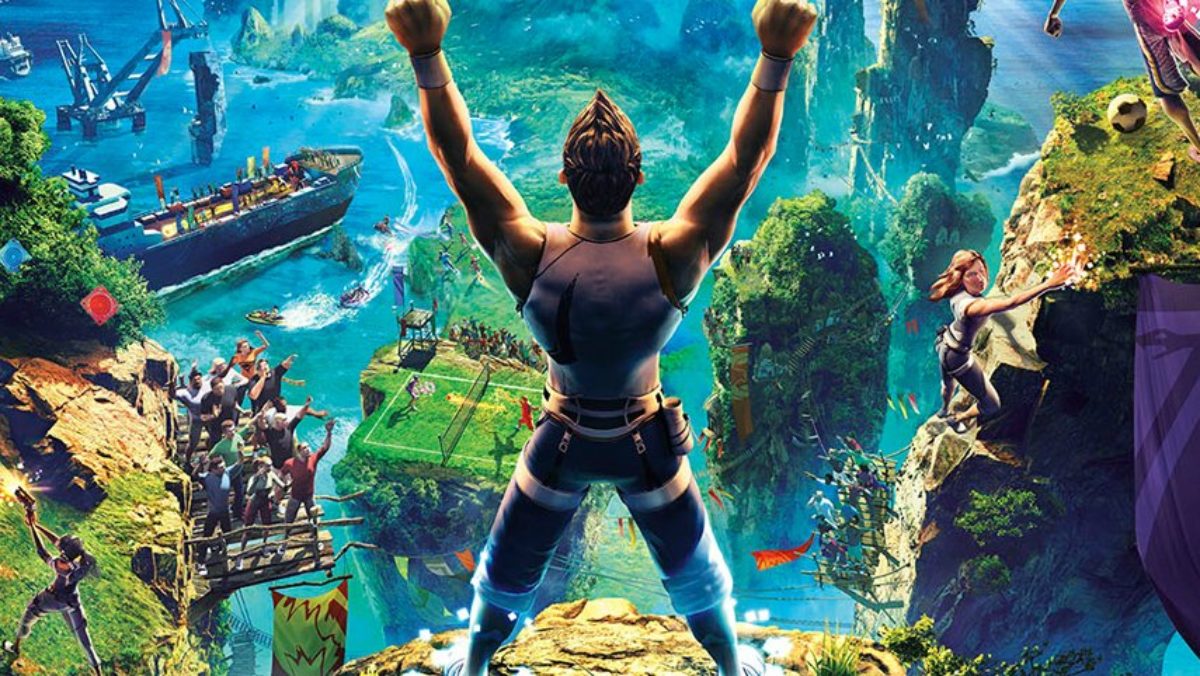
Zest in Video Games: Teens Need Some Excitement
This article is part of a series that captures game industry experts' opinions on game titles and mechanics that might boost habits, mindsets, and skills that empower teens to thrive. These insights arose from discussions at an iThrive Games-sponsored think tank with game developers and scholars.
Teens are wired to venture out, take risks, and discover who they are in the world during what should be an exhilarating time of life. So it's troubling that so many teens report mostly feeling bored, stressed, and tired at school, and excited less than 5% of the time. Developmental psychologist Diana Divecha told us that teens can get disconnected from their natural enthusiasm for life outside of school, too, when they experience too much stress or family conflict or have too many energy-draining activities scheduled in their day. Teens need time to reset, rebuild their energy, and explore the things they're enthusiastic about on their own terms. And since teens' brains are incredibly plastic, the teen years are an important time to cultivate and protect their zest for life.
What exactly is zest? Zest is sometimes described as vitality or "feeling alive." It means embracing experiences or life in general with positivity, enthusiasm, and energy, and it looks different in different kinds of people. For instance, an extravert might show zest by energizing others to join a cause, and an introvert might show zest by exploring a personal passion in a quiet, reflective way. But however it manifests for any one person, studies have found that teens who report higher levels of zest also report greater satisfaction with life, fewer symptoms of anxiety and depression, and greater feelings of self-efficacy, meaning they believe they are in charge of and capable in their own lives.
There are many ways to support zest. Practicing healthy habits like exercise, healthy eating, mindfulness, and getting enough sleep are important for good physical energy. People can also support zest when they savor life's good experiences, practice optimism and gratitude, and maintain good social relationships. And video games are another tool that might empower teens to reconnect with the enthusiasm and energy that they don't often feel in school (and to engage in other habits we mentioned, like exercise and social connection. More on that below). We talked to game developers and scholars about how exactly this might work. Besides the fact that video games are a ton of fun, what specific features and mechanics can support teens in tapping into their energized enthusiasm?
VIDEO GAMES MIGHT SUPPORT ZEST WHEN THEY:
- Feature whimsy, humor, lightheartedness, and joy. Video games that use bright colors, upbeat music, and funny dialogue and characters can contribute to a high-energy, positive mood. Pikmin (10+ years) and Zoombinis (8+ years) feature cute, whimsical characters and entertaining sound effects. Grim Fandango (13+ years) and Monkey Island (12+ years) are silly and playful with over-the-top memorable characters, quirky art styles, and funny circumstances that inspire happy, energized feelings.
- Let players take risks and be daring in a safe environment. In the Assassin's Creed (18+ years) and Infamous (16+ years) series, players feel the thrill of doing parkour without the physical risk. In Tony Hawk's Pro Skater HD (13+ years), players can dare to try awesome skateboarding tricks without getting hurt. Just be sure teens are realistic about how risky these activities can be in the real world.
- Allow innovation and exploration. Goat Simulator (11+ years with certain settings) and Octodad: Dadliest Catch (10+ years) both have an absurdly silly premise. They allow the player to be able to do almost anything and to see their experimentation pay off in unexpected and hilarious ways. Minecraft (8+ years) gets players fully absorbed in building anything they can imagine within a gigantic open world that features soothing music and vibrant colors.
- Encourage a sense of exhilaration and adventure. The Elder Scrolls V: Skyrim (18+ years) and Uncharted series (14-15+ years) inspire a sense of adventure, allowing players to explore lavish, beautiful environments and to uncover stories of intrigue. Classic adventure games like Myst (13+ years) and Monkey Island (12+ years) intrigue players with fun puzzles.
- Require real-world motion. Sports and fitness games like Wii Sports Resort (8+ years) and Kinect Sports Rivals (10+ years) and rhythm and dance games like the Dance Dance Revolution series (6-13+ years) give players a chance to move and groove, which helps boost energy levels and may even help teens meet physical activity guidelines. Since not everyone is physically able to play these games, simulating high-energy movement in games can also be exhilarating. Endless runners like Temple Run (9+ years), Sonic Dash (6+ years) and Jetpack Joyride (13+ years) have colorful visuals, catchy, upbeat music, and constant motion to keep energy levels high.
- Let players make social connections and fun memories. Party games like Charades or The Metagame (14+ years) have players interact with, perform for, and play off of each other in fun, creative, sometimes physical, and often silly ways.
- Give players a chance to contribute to a meaningful cause. Some players might be really motivated and energized by real-world positive outcomes of their gameplay. Check out our post on purpose in games like Sea Hero Quest (E for Everyone) and Foldit (all ages) for more.
- Keep players engaged right to the end. "Completionists" show their zest through their dedication to exploring, doing, and collecting everything possible inside a favorite game. Open-world games like Elder Scrolls V: Skyrim (18+ years) can inspire this, and so can games like Pokémon Go (13+ years) with their emphasis on creature collection ("Gotta catch 'em all!").
When have games helped you to feel zest, enthusiasm, and energy? What games or mechanics have we missed? Share with us!


